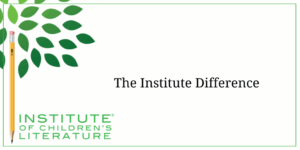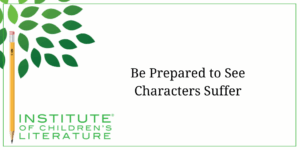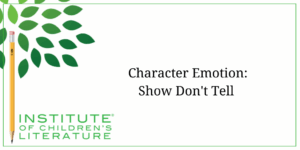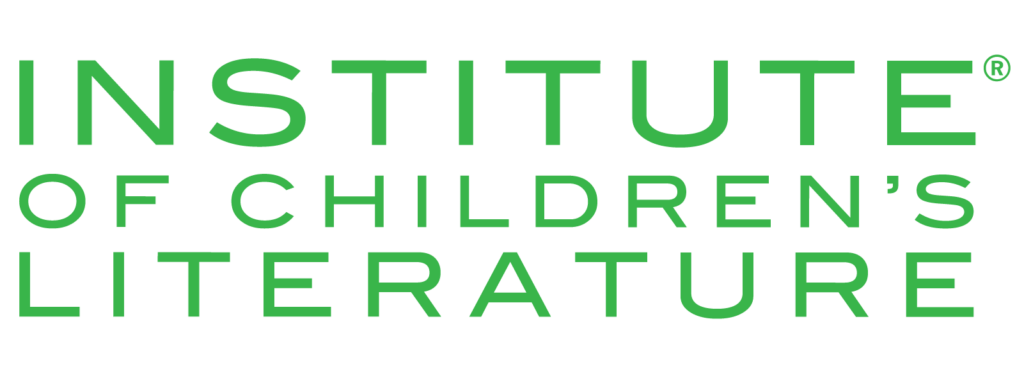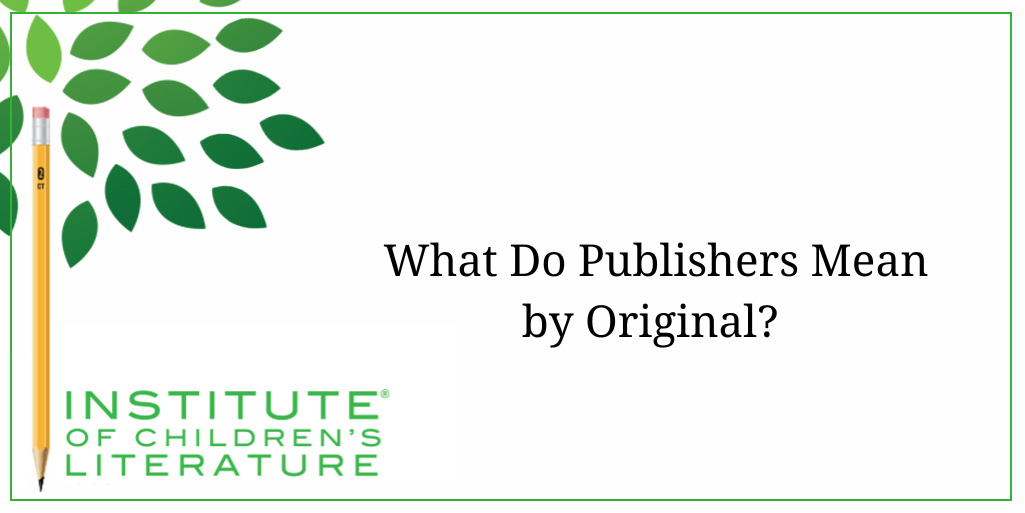
- Date: May 29, 2025
- Author: Jan Fields
- Category: Writing for Children Blog
- Tags: original concept, originality, Submissions
We teach our students how to write and get published!
View our Course Catalog >
What Do Publishers Mean by Original?
Whenever a writer flips through picture books in bookstores and notes the number of bedtime books and “I love you” books, it can be hard to believe publishers really are looking for “original concepts” the way they say they are in their submission guidelines. In fact, “original concepts” appears in so many submission guidelines that it implies originality is one of the key elements that publishers want. But what do they mean by “original concepts?” 
It Isn't Fan Fiction
Fan fiction is a type of writing that basically wouldn't exist if not for someone else's creative work. If you write a middle grade story set at Hogwarts, that's fanfiction. It isn't original. In fact, it is the very legal definition of derivative works (a new work based on a previous, copyrighted work). Now, if you change the name of the magic school to Snorgwattle, but it's still a magic school with talking paintings and a sorting hat (or maybe a sorting caldron or sorting mirror) then it's still a derivative work because despite the changing of some or even many elements, it's still based on another work. It's still fan fiction. You can make little tweaks on everything (messenger crows instead of owls, invisibility hats instead of invisibility cloaks, and nonmagical people called “normies” instead of “muggles”) and it will still be fan fiction, and it will still be a derivative work. It's derivative because it exists because of something else.
Now, some books are called derivative by reviewers simply because they have specific overused elements. In this case, derivative means “too much like something else.” So, a YA novel with a romantic, dark, brooding vampire book is going to be labelled derivative even if it doesn't depend on any single vampire book as “inspiration.” The brooding vampire has simply become too much of a fixture in books, especially as a romantic lead. You could do something very original and unexpected in your book, but the presence of a romantic lead who is a dark, brooding vampire is likely to get you labelled derivative. It won't be a legally derivative work, but it's going to give publishers pause because they know it's going to get negative reviews calling it derivative, and that may turn some readers and sales away. It will also make it less likely for the published book be bought by libraries and schools.
It's not uncommon for publishers to begin to shy away from overused elements long before the reader interest in them completely dies. This often results in fertile ground for self-publishers who continue to meet the reader's interest in romantic leads who are dark, brooding vampires after many of the larger publishing houses absolutely don't want to see them anymore. So, something that is beginning to be over-saturated in the market may still do well if you're open to stepping outside traditional publishing options and go your own way.
It Stands Out
In some ways, “original concept” is simply a way of saying “this book will stand out amongst those similar to it.” So, if you are writing a book about mother-child love, you're writing in a very crowded field, and you'll need to do something big to stand out. In I Will Love You Anyway, Author Mick Inkpen takes the love picture book in a new direction. It's basically the story of a dog who is endlessly naughty (being especially given to running away) to the point that the parents in the story are ready to get rid of the dog. The dog runs away again and gets lost. But his boy finds him and takes him home.
The dog is the focus of the book, but the love of the child for this very naughty dog is what makes it a love book. Interestingly, the dog has a revelation, but he doesn't change his nature. He's still a very naughty dog. The story is about how love is not based on being deserving, and it's nicely done. It stands out in a crowded field. And the rhyming text is great too.
 Basically, that's something your book needs to do. It needs to stand out. This is especially true if you're writing in a genre or trope that has been done a lot. You need to find ways to stand out and know exactly how you're doing it. Vampire novels, for example, were not new when Stephanie Meyer wrote her sparkly vampires, but she connected with something teenaged girls could relate to in the time and her books were huge successes. Finding that thing that makes your book stand out is key to leaping over that originality hurdle.
Basically, that's something your book needs to do. It needs to stand out. This is especially true if you're writing in a genre or trope that has been done a lot. You need to find ways to stand out and know exactly how you're doing it. Vampire novels, for example, were not new when Stephanie Meyer wrote her sparkly vampires, but she connected with something teenaged girls could relate to in the time and her books were huge successes. Finding that thing that makes your book stand out is key to leaping over that originality hurdle.
One way to stand out is to draw on your own life, especially emotionally. That often leads you in directions no one else has taken. Understanding the emotion of the story will create deeper, more unique characters. It will also result in a theme that grabs, and feeling completely engaged in a story makes it feel original, even if you have some familiar elements.
Another way to stand out is to be aware of the common tropes in the genre you're writing. If you are writing a love picture book, you need to have read all the love picture books and see which things seem to appear in most of them. Those will be the things that can trip you up and make you feel unoriginal. Know what's common. Go somewhere else with your story. That will bring surprise to the story, and if you can surprise a reader, your work will feel original.
The Originality Test You Must Not Fail
Every writer brings a set of life experiences, cultural touch points, and beliefs to their work. These things affect your style and voice, as long as you let them. This effect makes your voice original. But it only works if you're being authentic. If you are intentionally trying to sound like some other writer you admire, then you're not going to be authentically you. Now, I've written some books where I was intentionally copying another writer's voice and style because I was adding to a series begun by another author and the publisher wanted them to fit in. I didn't succeed perfectly, but it was my goal. It was also something done at the publisher's request for a specific reason. It isn't something an acquiring editor or an agent would want to see in a work I'm submitting on my own.
Finding your writing voice is actually a pretty simple process. You simply relax into the story and when you are caught up in this story and these characters, you simply write. The way you write when you're not trying to be a writer is your authentic, original voice. It shares similarities with other writers because you're using the same language, and you have some of the same cultural touch points and background, but you'll never sound exactly like someone else. Natural writing voice is a bit like fingerprints, it's yours and no one else's. Now you might push that voice in different directions as you write dialogue since your characters shouldn't all sound like each other, or like you, but the overall voice of the story is the voice that only you can do. 
Years ago, I had a friend who I knew only through online. We worked together some. I wrote this person a lot of emails, and we'd talked on the phone now and then. But when a story I'd written came out in publication, he read it and wrote to tell me that he'd have known it was mine simply from reading it. It sounded like me. At that time, I didn't think much about having a writing voice. I thought only impressive writers had a writing voice. So, it was a surprise to me to discover I had one without ever trying. Of course, that's because writing voice is a very natural extension of who you are.
If you write your book in a very authentic, personal way, your voice and your work will be original. If you approach the story with the heart of the piece already set inside you, your work will be original. And if you cut yourself free of any urge to write the story you've already read somewhere else, your work will be original. As Isaac Bashevis Singer once said, “Originality is not seen in single words or even in sentences. Originality is the sum total of a man's thinking or his writing.” You are an original. The answer to the problem of originality is in you. Let it out.
Related Articles for Understanding Originality
With over 100 books in publication, Jan Fields writes both chapter books for children and mystery novels for adults. She’s also known for a variety of experiences teaching writing, from one session SCBWI events to lengthier Highlights Foundation workshops to these blog posts for the Institute of Children’s Literature. As a former ICL instructor, Jan enjoys equipping writers for success in whatever way she can.

